Why do my teeth hurt when I have a Cold?


Related products
Introduction
The common cold, a familiar ailment experienced universally, presents a myriad of symptoms, ranging from nasal congestion to a sore throat. However, a less discussed but equally perplexing symptom is tooth pain during a cold. This phenomenon, intriguing in its occurrence, merits a closer examination to understand its underlying causes and implications.
The prevalence of the common cold is staggering. According to statistics from the UK Health Security Agency, an average adult can expect to catch a cold two to four times annually, with children experiencing it even more frequently. This high incidence rate makes understanding all associated symptoms, including dental discomfort, crucial for a comprehensive approach to health during cold seasons.
Delving into the concept of referred pain, a fascinating facet of human physiology, we find it plays a pivotal role in the experience of tooth pain during a cold. Dr. Emily Clarkson, a renowned dental expert, explains, “Referred pain occurs when pain originating in one part of the body is felt in another. In the context of a cold, sinus pressure can trigger discomfort in the teeth, although the teeth themselves may not be the primary source of pain.” This insight sheds light on the interconnectivity within our bodies, where a problem in one area can manifest symptoms in another.
The main aim is to explore the intriguing link between the common cold and dental pain, delving into the anatomical and physiological aspects of this relationship. We will examine the dynamics of sinus pressure and its impact on dental nerves, investigate the role of referred pain, and consider secondary factors contributing to this discomfort. By intertwining expert opinions, statistical data, and detailed analysis, we aspire to provide a thorough understanding of why teeth might hurt during a cold, offering guidance on managing and mitigating this symptom.
The key theme of this exploration revolves around the interconnectedness of bodily systems, particularly how a respiratory infection like the common cold can lead to unexpected symptoms like tooth pain. Through this article, we will dissect this intriguing connection, providing insights and advice from medical professionals. The journey through this topic will not only enhance our understanding of the common cold but also illuminate the complexities of the human body and the sometimes surprising ways it reacts to illness.
Moreover, the article will serve as a resource for individuals experiencing this symptom, offering them a well-rounded perspective on why it occurs and how to address it. The insight gained from this exploration will empower readers to approach their health holistically, understanding that symptoms might have multifaceted origins and require a comprehensive approach for effective management.
Understanding the Common Cold

The common cold, an ailment as ubiquitous as it is variable, stands as a prime example of the body's constant battle against viral intruders. Medically known as an upper respiratory tract infection, it is predominantly caused by rhinoviruses, though a multitude of other viruses can also be culpable. These viruses thrive in the nasal passages and throat, setting the stage for the common cold's hallmark symptoms.
Dr. Jonathan H. Smith, an eminent virologist, elucidates, "While the common cold is often dismissed as a minor ailment, it's actually a complex interplay between viral pathogens and our immune system." This interaction begins when a virus invades the cells lining the respiratory tract, hijacking them to replicate and spread.
The symptoms associated with the common cold are diverse and widely recognized. Nasal congestion, runny nose, coughing, sore throat, and sneezing top the list. However, less commonly acknowledged symptoms like muscle aches, fatigue, headache, and indeed, tooth pain, also form part of this spectrum. Dr. Sarah Bennett, a general practitioner, notes, "Every individual experiences the cold slightly differently. While nasal symptoms are most prevalent, other symptoms like toothache can also manifest, particularly in cases of severe sinus congestion."
A remarkable aspect of the common cold is the body's immune response. Upon detecting the viral invaders, the immune system launches a robust defense, releasing cytokines and other inflammatory mediators. These substances are responsible for many cold symptoms. For instance, nasal congestion is largely due to the dilation of blood vessels in the nasal passages, a direct result of the body's inflammatory response.
The prevalence of the common cold is astonishing. The UK Health Security Agency's statistics reveal that on average, children can catch between six to eight colds per year, while adults experience two to three. This high frequency underscores the importance of understanding the cold's myriad symptoms and the body's response to it.
Dr. Helen Richards, an immunologist, emphasizes, "The body's response to a cold is a testament to the immune system's complexity. The symptoms, while uncomfortable, are indicative of the body actively fighting the infection." This battle, while necessary, can sometimes inadvertently lead to symptoms like tooth pain, as the immune response inadvertently affects areas like the sinuses, which are closely linked to dental nerves.
The common cold, a seemingly simple ailment, reveals itself to be a complex interplay of viral infection and immune response. Understanding this dynamic is crucial, not just for medical professionals, but also for individuals seeking to manage their symptoms effectively. The exploration of this topic not only sheds light on a common health issue but also underscores the intricate workings of the human body and its capacity to defend itself against external threats.
Anatomy of the Teeth and Sinuses
Basic Dental Anatomy
The human dental structure is a marvel of biological engineering, comprising various components each playing a critical role. Each tooth is made up of the crown (the visible part above the gum) and the root, which anchors the tooth into the jawbone. The key element in the context of pain sensation is the dental pulp, a soft tissue located in the center of the tooth. This pulp contains nerves and blood vessels, providing the tooth with nutrients and sensation.
Dr. Laura Mitchell, a dental surgeon, explains, "The nerves in the dental pulp are exceptionally sensitive. They can respond to a range of stimuli, including pressure, extreme temperatures, and, crucially for our discussion, inflammation from nearby structures such as the sinuses." This sensitivity is why various conditions, not necessarily originating from the teeth themselves, can cause dental pain.
Overview
Adjacent to the dental region are the sinuses, air-filled cavities located in the skull. The largest of these, the maxillary sinuses, are situated just above the upper jaw and below the eyes. This proximity to the upper teeth is a critical aspect when considering tooth pain during a cold.
"The close relationship between the maxillary sinuses and the upper teeth means that any pressure or pain in these sinuses can be easily mistaken for dental pain," notes Dr. Richard Clarkson, an ENT specialist. This proximity is a primary reason why sinus infections or inflammation can lead to sensations of toothache.
How Sinus Inflammation Can Impact?
When the body combats a cold, the sinuses often become inflamed as part of the immune response, leading to sinusitis. This inflammation can cause the sinus lining to swell, reducing the drainage of mucus and causing a build-up of pressure.
Dr. Mitchell adds, "When the maxillary sinuses, located right above the upper teeth, become inflamed, the pressure exerted can stimulate the nerves in the dental pulp, leading to a sensation of pain in the teeth." This phenomenon explains why tooth pain is a common, albeit less discussed, symptom of the common cold.
Moreover, the nerves in the upper teeth and those in the sinus area are part of the same nerve branch, the trigeminal nerve. "This shared nerve pathway is another reason why pain originating in the sinuses can be felt in the teeth, a classic example of referred pain," states Dr. Clarkson.
The Link Between Colds and Toothache

How Nasal Congestion and Sinus Pressure from a Cold Can Lead to Tooth Pain
The common cold, with its characteristic nasal congestion and sinus pressure, often leads to an unexpected companion: toothache. Dr. Emily Clarkson, a dental expert, elaborates, "When you have a cold, the nasal congestion isn't just uncomfortable; it can also cause significant pressure in the sinuses, particularly the maxillary sinuses located above the upper teeth." This pressure can exert force on the dental nerve endings, leading to a sensation of pain in the teeth.
Sinus pressure during a cold is primarily due to the inflammation of the sinus lining, which leads to a decrease in the natural drainage of mucus. "This build-up of pressure can be intense enough to cause a pain response in the teeth, especially the upper molars, which are in close proximity to the sinuses," explains Dr. Richard Clarkson, an ENT specialist. The pain is typically experienced in the upper teeth and can range from a dull ache to sharp, intense discomfort.
How Pain in One Area Can Be Felt in Another
Referred pain, a phenomenon where pain experienced in one part of the body is felt in another, plays a significant role in the context of tooth pain during a cold. The nerves in the sinuses and teeth, particularly those in the upper jaw, are interconnected. "When the sinuses are inflamed or congested, the nerves can send pain signals that are perceived as originating from the teeth, even though the teeth themselves may be healthy," states Dr. Laura Mitchell, a dental surgeon.
This concept of referred pain is vital in understanding why a respiratory infection like a cold can lead to symptoms seemingly unrelated to the respiratory system. It's a testament to the complexity of the body's nervous system and how different parts can influence each other.
Is it Normal for Teeth to Hurt from Cold?
Tooth pain during a cold is more common than often acknowledged. "Many patients report experiencing tooth pain during a cold, which is a normal response to the increased sinus pressure and congestion," remarks Dr. Bennett, a general practitioner. This pain is usually temporary and subsides as the cold symptoms diminish.
Distinguishing Between Normal Discomfort and Signs of More Serious Conditions
While tooth pain during a cold is typically benign, it's crucial to distinguish between this and more serious dental conditions. "If the tooth pain persists after the cold symptoms have resolved, or if it's accompanied by severe pain or swelling, it's important to consult a dentist to rule out other dental issues like cavities or gum disease," advises Dr. Mitchell.
Managing Tooth Pain Caused by a Cold
Home Remedies and Over-the-Counter Solutions
When dealing with tooth pain during a cold, there are several home remedies and over-the-counter solutions that can offer relief. Dr. Emily Clarkson suggests, "Warm salt water rinses can help alleviate tooth pain by reducing inflammation and providing a natural antiseptic effect." Saltwater can draw out fluids from the inflamed tissues, thereby decreasing pressure and pain.
Over-the-counter pain relievers like ibuprofen or acetaminophen can also be effective. "These medications not only help with tooth pain but can also reduce overall symptoms of the cold, like fever and muscle aches," adds Dr. Sarah Bennett.
Tips
To manage dental discomfort during a cold, it's essential to keep the head elevated, especially during sleep. "Elevating your head helps reduce sinus pressure, which in turn can alleviate the pain felt in the teeth," explains Dr. Richard Clarkson. Additionally, maintaining good oral hygiene, even when feeling unwell, is crucial. Brushing and flossing regularly can help prevent any additional dental issues that might exacerbate the pain.
How to Get Rid of Sinus Pain in Your Teeth

Strategies to Reduce Sinus
Alleviating sinus pressure is key to managing tooth pain caused by a cold. Dr. Laura Mitchell recommends using warm compresses. "Applying a warm compress to the face, particularly over the sinus areas, can help loosen mucus, reduce inflammation, and thereby ease tooth pain."
Nasal irrigation, such as using a neti pot with a saline solution, can also be beneficial. "This helps clear the nasal passages of congestion, reducing the pressure in the sinuses that might be causing tooth pain," says Dr. Bennett.
Use of Decongestants, Steam Inhalation, and Other Methods
Over-the-counter decongestants can help reduce nasal congestion and sinus pressure. However, Dr. Clarkson cautions, "Be mindful of using decongestants as they can sometimes lead to rebound congestion if used for too long."
Steam inhalation, either from a hot shower or a bowl of hot water, can be effective. "The steam helps open up the nasal passages and alleviate the pressure that contributes to tooth pain," Dr. Mitchell notes.
Can a Cold Sore Make Your Teeth Hurt?
Cold Sores and Tooth Pain
Cold sores, caused by the herpes simplex virus, typically develop around the lips and mouth and can cause discomfort. While they don't directly cause tooth pain, the associated swelling and inflammation can lead to discomfort in nearby areas, including the teeth. "The inflammation from a cold sore can sometimes affect the nerves that are shared with the teeth, leading to a sensation of dental pain," explains Dr. Clarkson.
Addressing Misconceptions
It's a common misconception that cold sores can cause tooth pain. "While they can cause discomfort near the teeth, they don't directly affect the dental structures," clarifies Dr. Bennett. Understanding this distinction is important for accurately identifying the source of pain and seeking appropriate treatment.
Secondary Factors
Dry Mouth
A frequently overlooked contributor to tooth pain during a cold is the dry mouth caused by various cold medications. Decongestants and antihistamines, commonly used to alleviate cold symptoms, can reduce saliva production, leading to a condition known as xerostomia or dry mouth. Dr. Laura Mitchell, a dental expert, points out, "Saliva is essential for maintaining oral health. It helps neutralize acids and washes away food particles. A reduction in saliva can lead to increased bacteria growth, gum irritation, and even tooth pain."
To mitigate this side effect, it is advised to stay hydrated and consider using saliva substitutes or sugar-free gum to stimulate saliva production. "Keeping the mouth moist is important to prevent the discomfort and dental issues associated with dry mouth," adds Dr. Mitchell.
Impact of Dehydration
Dehydration, often accompanying a cold due to reduced fluid intake and fever, can significantly impact oral health. "Dehydration leads to decreased saliva flow, which, similar to the effects of certain medications, can increase the risk of tooth decay and gum disease, potentially leading to tooth pain," explains Dr. Emily Clarkson.
It is, therefore, crucial to maintain adequate hydration, especially when battling a cold. "Drinking plenty of water not only helps with overall recovery from the cold but also maintains oral health, thereby reducing the risk of tooth pain," advises Dr. Sarah Bennett, a general practitioner.
Clenching or Grinding Teeth
Stress and discomfort associated with a cold can lead to unconscious clenching or grinding of teeth, known as bruxism. "Bruxism can exacerbate tooth pain, especially if there's an underlying issue like a cavity or gum disease," says Dr. Richard Clarkson, an ENT specialist.
This involuntary action can put additional pressure on the teeth and jaw, leading to pain and discomfort. "Using a night guard can help alleviate the symptoms of bruxism," suggests Dr. Clarkson. Additionally, practicing stress-reduction techniques and ensuring a comfortable sleeping environment can help reduce the incidence of teeth grinding during illness.
Diagnosis and Distinguishing
When to See a Doctor or Dentist
Recognizing when to seek professional help is crucial in managing tooth pain effectively, especially when it occurs during a cold. Dr. Laura Mitchell advises, "If tooth pain persists for several days without improvement, or if it intensifies, it’s important to consult a dentist." Additionally, if the tooth pain is accompanied by symptoms like swelling in the gum area, fever, or severe discomfort when biting or chewing, these could be signs of a more serious dental issue.
Dr. Emily Clarkson, a dental expert, emphasizes the importance of timely intervention: "Early diagnosis can prevent more serious dental complications and ensure appropriate treatment is administered."
Diagnostic Methods
Dentists and doctors employ various diagnostic methods to distinguish between sinus-related tooth pain and other dental conditions. "A thorough clinical examination, including dental X-rays, can help determine if the pain is due to a dental issue like a cavity or gum disease," states Dr. Mitchell.
In cases where sinus issues are suspected, additional diagnostic tools such as CT scans or MRI may be employed. "These imaging techniques can provide a clear picture of the sinuses and help identify any inflammation or infection that might be causing the tooth pain," explains Dr. Richard Clarkson, an ENT specialist.
Importance of Professional Evaluation
Professional evaluation is essential not only for accurate diagnosis but also for the appropriate management of tooth pain. Self-diagnosis and treatment can sometimes lead to complications or overlook serious underlying conditions. "Only a qualified professional can accurately identify the root cause of tooth pain and recommend the appropriate course of treatment," says Dr. Bennett, a general practitioner.
Furthermore, distinguishing sinus-related tooth pain from other causes is crucial for effective treatment. Dr. Clarkson adds, "Misdiagnosing sinus-related tooth pain as a dental issue could lead to unnecessary dental procedures, while overlooking a dental problem could result in worsening of the condition."
Treatment and Management
Medical Treatments
When tooth pain during a cold is attributed to sinus pressure and congestion, several medical treatments can be employed for relief. Dr. Richard Clarkson, an ENT specialist, recommends, "Nasal decongestant sprays or oral decongestants can be effective in reducing sinus swelling and congestion, thereby alleviating the pressure that causes tooth pain." However, he cautions that these should be used as per directions to avoid rebound congestion.
In addition to decongestants, steam inhalation is a simple yet effective method. "Inhaling steam helps to moisten the nasal passages and sinuses, facilitating mucus drainage and reducing pressure," explains Dr. Emily Clarkson. Using a humidifier, especially at night, can also help keep the nasal passages moist.
For chronic or severe sinus issues, a doctor might prescribe corticosteroid nasal sprays or antibiotics in the case of a bacterial infection. "These treatments target the underlying cause of the sinus pressure, providing long-term relief," says Dr. Laura Mitchell, a dental expert.
Dental Interventions
If tooth pain during a cold is determined to be unrelated to sinus issues, dental interventions may be necessary. "The first step is a comprehensive dental examination to identify any underlying dental problems such as cavities, gum disease, or abscesses," states Dr. Mitchell.
Depending on the diagnosis, the treatment can vary. For cavities, a filling may be required, while more severe decay might necessitate a root canal treatment or even tooth extraction. If gum disease is the cause, treatments may range from professional cleaning to more advanced periodontal therapies.
Dr. Clarkson emphasizes the importance of addressing these dental issues promptly: "Ignoring dental problems can lead to more serious complications, including severe infection and even tooth loss." He also notes that preventative dental care is key in avoiding such issues.
Preventive Measures
Tips to Prevent Colds
Preventing colds and reducing their impact on oral health requires a multifaceted approach. Dr. Sarah Bennett, a general practitioner, suggests, "Regular hand washing and using hand sanitizers can significantly reduce the risk of catching a cold." This simple practice helps prevent the spread of viruses that cause colds.
Boosting the immune system is also crucial. "A balanced diet rich in vitamins and minerals, regular exercise, and adequate sleep contribute to a stronger immune system, making one less susceptible to colds," advises Dr. Bennett.
To mitigate the impact of a cold on oral health, Dr. Richard Clarkson recommends staying hydrated. "Drinking plenty of fluids helps maintain saliva flow, which is important for oral health, especially when dealing with a cold," he says.
Oral Hygiene Practices
Maintaining good oral hygiene is essential, even when unwell. Dr. Laura Mitchell emphasizes, "Brushing twice a day and flossing regularly should not be neglected during illness." This helps prevent the build-up of bacteria that can exacerbate tooth pain and cause other oral health issues.
Using a soft-bristled toothbrush can be more comfortable, especially if gums are tender. Dr. Emily Clarkson also recommends, "Rinsing with a fluoride mouthwash can help in reducing bacteria and maintaining healthy teeth and gums."
When to Seek Preventive Dental Care
Preventive dental care is key in maintaining oral health and preventing issues that could be exacerbated by a cold. "Regular dental check-ups, ideally every six months, allow for early detection and treatment of dental issues," states Dr. Mitchell. These visits can help prevent problems such as cavities and gum disease, which can lead to tooth pain.
Dr. Clarkson adds, "Professional cleanings during these check-ups remove plaque and tartar build-up, reducing the risk of gum disease and subsequent tooth pain."
Preventing colds and minimizing their impact on oral health involves a combination of good hygiene practices, a healthy lifestyle, and regular dental care. Maintaining oral hygiene during illness is crucial, as is seeking preventive dental care to address potential issues before they escalate. These proactive measures not only contribute to overall health but also play a significant role in preventing oral discomfort during common illnesses like colds.
Conclusion
Dr. Laura Mitchell summarizes this relationship succinctly: "The common cold can affect more than just our respiratory system; its effects can extend to our oral health, manifesting as tooth pain due to a variety of interconnected factors."
One of the key takeaways from this discussion is the importance of seeking professional advice for persistent or severe tooth pain. "Self-diagnosis and treatment can often lead to mismanagement of the actual cause of pain. If the toothache persists after a cold, or if it's severe, consulting with a dentist or doctor is crucial," advises Dr. Emily Clarkson.
Professional evaluation ensures that the root cause of the pain is accurately identified and appropriately treated, whether it relates to a dental issue or is a repercussion of sinus inflammation due to a cold.
Understanding the link between colds and tooth pain is not just about managing a symptom; it's about gaining a deeper insight into the complex interactions within our bodies. This knowledge empowers individuals to take more informed actions regarding their health, recognizing when a symptom might be a minor side effect of a cold or indicative of a more serious dental condition.
Dr. Richard Clarkson emphasizes, "Awareness of how different parts of our body can affect each other is crucial for holistic health management. The case of tooth pain during a cold is a perfect example of this interconnectivity."




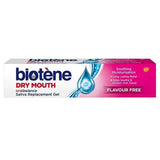








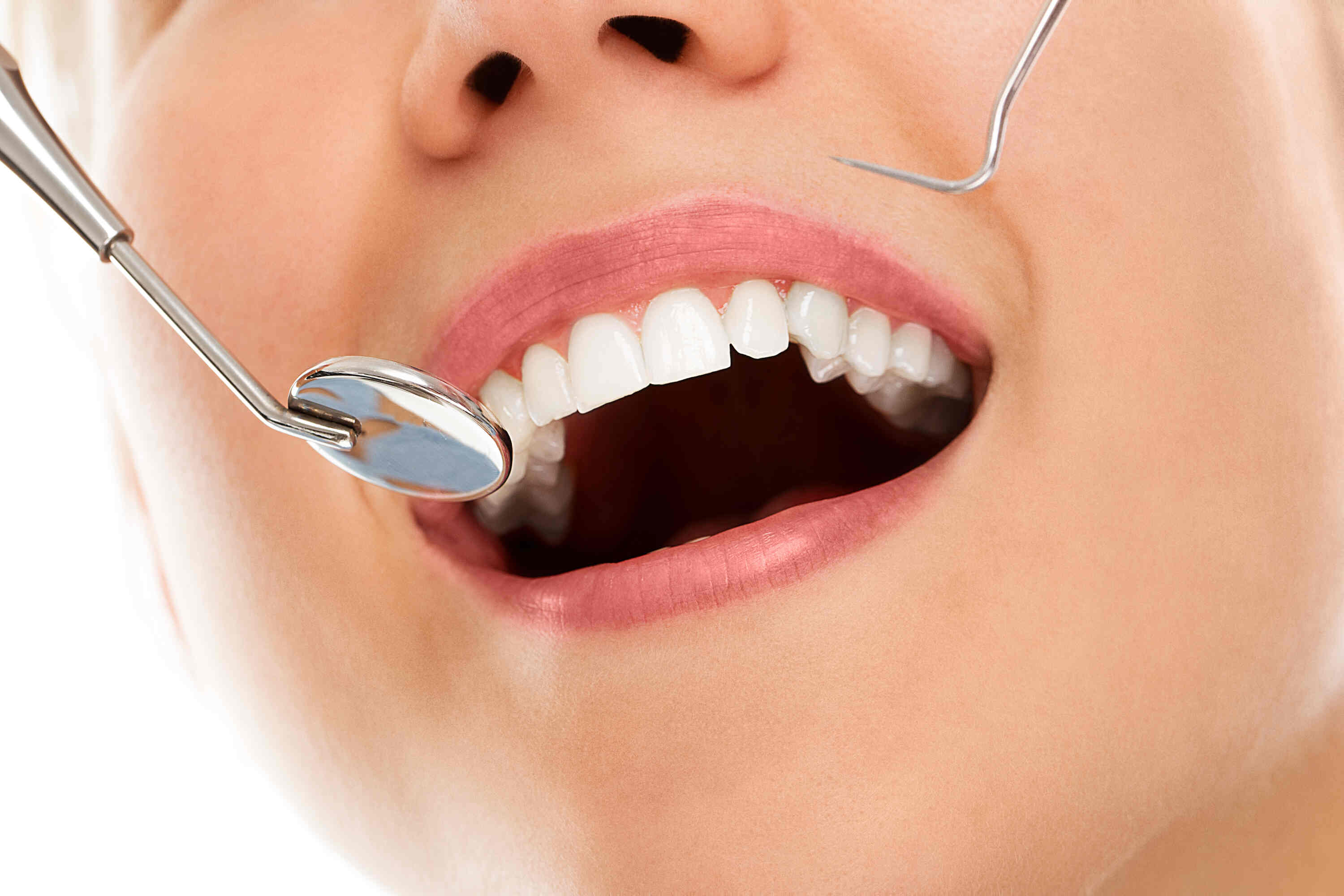







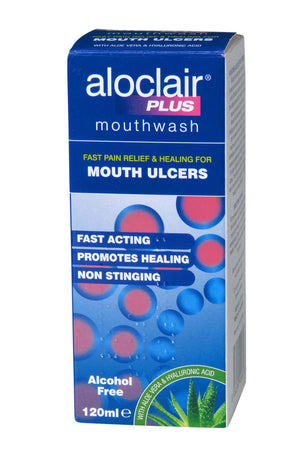

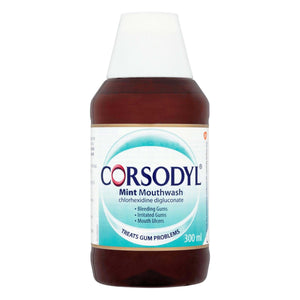

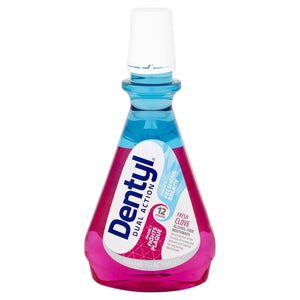




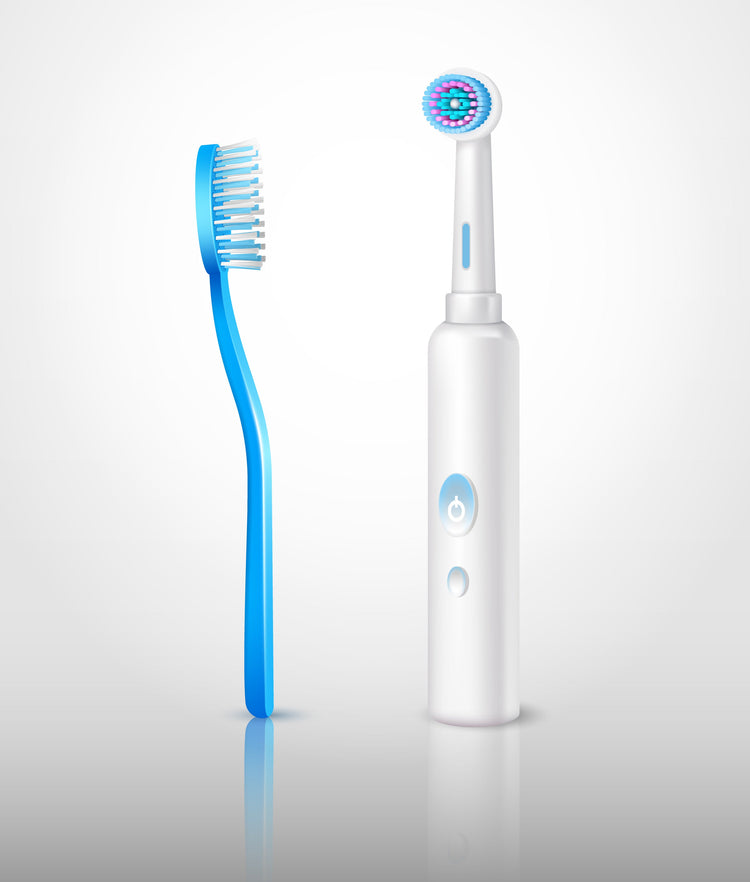
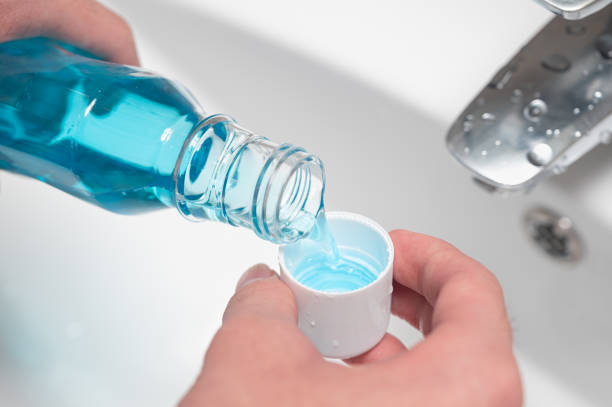



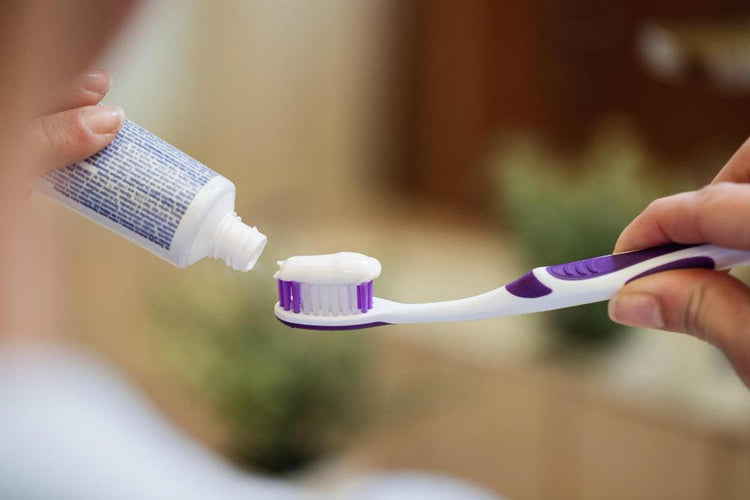

 Rated Excellent by 26,523+ Reviews
Rated Excellent by 26,523+ Reviews